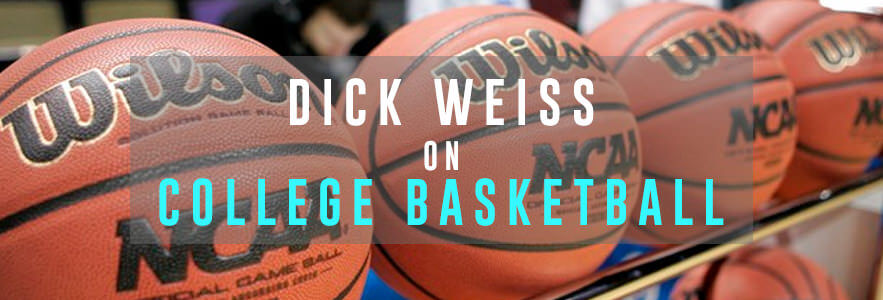
Dick Weiss on College Basketball
The college basketball corruption trial in New York City may be winding down, but not before Duke’s elite recruit Zion Williamson was caught up in allegations his father asked for cash and housing for his family from Kansas, according to a taped conversation between Adidas employee Merl Code and Jayhawks’ assistant Kurtis Townsend.
Before Williamson committed to Duke last January, he took an official visit to Kansas in September and Townsend was his lead recruiter along with head coach Bill Self. The conversation started after Townsend asked what it would take to sign Williamson.
“Hey, but between me and you, he asked about some stuff,’’ Code was heard saying. “I know what he’s asking for. This is the player’s father. He’s asking for opportunities from an occupational perspective, he’s asking for cash in the pocket and he’s asking for housing for him and his family.’’
“So I’ve got to just try to work and figure out a way,’’ Townsend said. “Because if that’s what it takes to get him here for 10 months, we’re going to have to do it some way.’’
The conservation was not allowed into evidence during the trial of Code, Adidas executive James Gatto, Jr. and former agent Christian Dawkins, but Mark Moore, Code’s defense attorney, read from a transcript of the call while arguing the defense’s position to District Court Judge Lewis A. Kaplan without a jury present.
The 6-7, 280-pound Williamson was one of the most hyped recruits in recent memory and a highlight film of his high school slam dunks has attracted 1.7 million followers on Instagram.
There is no evidence Kansas offered Williamson any improper benefits, but the conversation will likely raise the inevitable questions among cynics about how Williamson landed at Duke over four other finalists—Clemson, Kentucky, North Carolina and South Carolina.
The day before, text messages between former Adidas consultant TJ Gassnola, Self and Townsend presented by the defense attorneys indicated the coaches were at least aware of Gassnola’s involvement in the Jayhawks’ recruitment of current Kansas forward Silvio De Sousa, a native of Angola.
Gassnola testified last week he paid $89,000 to former Kansas player Billy Preston’s mother and that he also agreed to pay $20,000 to De Sousa’s guardian Fenny Falmagne, to help him to get out of a pay to play deal to play for Maryland. Gassnola testified Townsend and Self were not aware of the payments he made to players’ families.
In another development, Casey Donnelly, one of Gatto’s attorneys, tried to introduce a wiretap recording between LSU coach Will Wade and Christian Dawkins, a former runner for defrocked agent Andy Miller. According to the transcript that Donnelly read, Dawkins called Wade last winter and inquired about the school’s interest in 7-0 center Balsa Korprivica from Montverde Academy in Florida.
Wade went into his office, closed the door and told Dawkins: ”Here’s my thing: I can get you what you need but it’s got to work.’’
Koprovica, the son of a former Serbian pro player Slavisa Koprovica, committed to LSU in June. Kaplan wouldn’t allow the call into evidence and it wasn’t played to the jury.
The government on Tuesday closed its case, which lasted more than six days. The defense, whose case lasted less than 30 minutes, never called a single witness. Closing arguments are expected to begin Wednesday afternoon. No matter what happens, it should be interested to see what the NCAA does with this information.
Dick Weiss is a sportswriter and columnist who has covered college football and college and professional basketball for the Philadelphia Daily News and the New York Daily News. He has received the Curt Gowdy Award from the Naismith Basketball Hall of Fame and is a member of the national Sportswriters Hall of Fame. He has also co-written several books with Rick Pitino, John Calipari, Dick Vitale and authored a tribute book on Duke coach Mike Krzyzewski.




